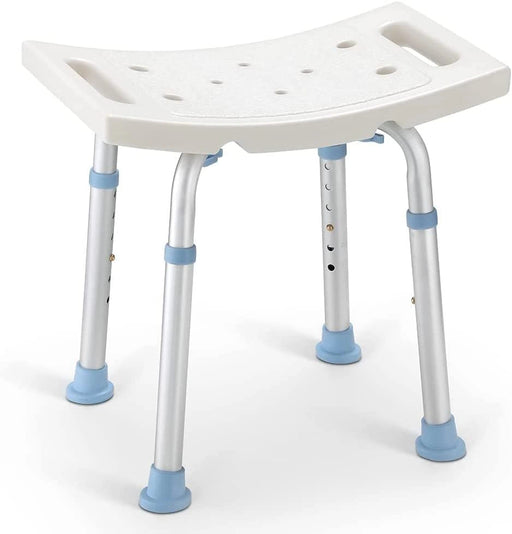9 Cold Weather Safety Tips for Seniors
It can be difficult getting around and staying warm during the winter months for everyone, but seniors face additional challenges. The body heat of older adults can be lost at an accelerated pace - faster than when they were young. As someone ages, their body would undergo changes which make them less aware of feeling cold. When an older person gets a big chill, it can become a dangerous problem before they even realize what's going on. Physicians refer to this condition as hypothermia.
Your body temperature drops to a dangerous level when you suffer from hyperthermia. When you are in the cold for a long time, your body temperature can fall drastically because of a rapid loss of heat. An older person's body temperature can dip below 95 degrees even by living in a cold home for too long, causing severe health problems.

As a result, winter can present a particular set of challenges for those over 65 years old. For you and your loved one to enjoy the season to the fullest, it's crucial to know what the risks are and how to deal with them. If the weather gets icy or snowy or the temperature drops, older adults can stay safe by following a few winter safety precautions.
1. Watch the Step on Ice
Icy, snow-covered sidewalks and roads make slipping and falling extremely easy. Winter months are especially hazardous for seniors because they tend to fall more often than in other seasons. These falls result in severe injuries like hip fractures, wrist fractures, head trauma, and lacerations in many cases. In addition to wearing shoes with good traction and non-skid soles, experts advise older adults to stay indoors until the roads are clear. Older people are also advised to remove their shoes immediately after returning indoors, since the snow and ice adhere to their soles, causing a slippery surface once it melts. For those who walk with mobility aids, it is recommended to change to a pneumatic upright walker or a pneumatic rollator to provide extra anti-skid stability. With their own shock absorption function, pneumatic tires can pass uneven roads more smoothly. Meanwhile, the metal frame protects against punctures.

2. Put on Warm Clothing
Frostbite and hypothermia can occur when the body temperature is too low. The Centers for Disease Control reported that more than half of hypothermia-related deaths were among people 65 and over. Older adults should dress warmly for outdoor excursions by wearing layers of socks, hats, gloves, and scarves. If the temperature is frigid, they should cover every exposed part of their body, including their mouth, with a scarf. Immediately seek medical assistance if your loved one's temperature dips below 95 degrees on a thermometer.

3. Combat Winter Depression
Despite the focus on seniors' physical safety and health during the wintertime, mental health is just as important. Winter weather will likely increase feelings of isolation, which can lead to depression. In the cold months, many older adults have less contact with others because it's hazardous and hard to get around. Because of this, they may feel isolated and lonely. Families can prevent these problems by regularly checking in on senior loved ones or sending them to adult day care; in the absence of face-to-face contact, digital communication can provide an alternative. In addition, senior citizens can set up a check-in system with neighbors and friends during which each person keeps tabs on one or two others each day.

4. Prepare for Power Outages
Unfortunately, power outages are a common occurrence during the winter. Ensure your elderly loved one has all the items he needs to survive several days without power in his living space. Wintertime essentials include flashlights, battery-powered radios, warm blankets, and bottled water. If they experience a more prolonged power outage, keep a stock of non-perishable foods on hand that can be consumed cold. Older adults should take precautions when the power goes out, including wearing layers of clothing and hats. In the days following a storm, enlist the assistance of a local neighbour or friend to check on an aging loved one living alone.
5. Inspect the Vehicle
Winter driving can pose a risk to anyone. But older people, who may not drive as frequently or whose reflexes may have slowed down, are especially vulnerable to this danger. Make sure their car is serviced in advance of winter. It is essential to inspect their vehicle's oil, tires, battery, and wipers during cold days. If your elderly parent is a AAA member, make sure they have an up-to-date membership. Seek safe and reliable senior transportation options if driving is inevitable in the winter.

6. Maintain a Varied Diet
Due to the increased time spent indoors and a smaller variety of foods eaten, nutritional deficits, particularly vitamin D deficiency (which has been linked to health issues like cognitive decline, depression, and osteoporosis among others), can cause health issues. The American Association of Clinical Nutrition recommends that senior citizens consume food fortified with Vitamin D, such as milk, grains, and fish such as tuna.

7. Prevent the Flu
Seniors are especially susceptible to the flu because their immune systems deteriorate with age. According to the CDC, as many as 90 per cent of deaths linked to seasonal flu occur among older people aged over 65. Getting a flu shot can drastically reduce the risk of flu-related complications for your aging loved one. Getting seniors protected against the flu is better done as early as possible, but it is never too late. In addition, due to a changing virus every year and because immunity fades over time, annual flu shots ensure maximum protection.
8. Avoid Carbon Monoxide Poisoning
During winter, gas-powered furnaces and alternative heating sources make carbon monoxide poisoning the most common cause of death. Despite not being the first peril to consider for winter weather safety, seniors and their families should know how CO poisoning can affect them — headaches, confusion, dizziness, nausea — in order to avoid confusing these symptoms with those from influenza or exhaustion. Make sure the HVAC, water heater, and chimney in the house are adequately maintained. It is never a good idea to use a gas oven to heat the house or to use a generator indoors. In your garage, shut off the car immediately and install CO detectors in your home.
9. Remain Active
Even though every individual should exercise regularly, seniors are particularly susceptible to the harmful effects of sedentary lifestyles. Winter is also a time when joint pain tends to be more intense. Sitting all day can exacerbate that pain. Seniors can be physically active and social at the same time with activities such as swimming, walking with a friend, and stretching. This will lead to a healthier emotional state.

The most important thing you can do to keep older people safe during the colder months is to encourage them to reach out for assistance. They can seek assistance from a family member or neighbor or hire a professional if they need to clear their property of snow or ice or get daily groceries.
Even though the arrival of winter can be an overwhelming experience for seniors, advance planning and preparation can ensure safe and healthy aging, as well as offer a great deal of peace of mind to both seniors and those who care for them.
Recommend Products
-
 Sale
Sale
Standard - 300LBS Capacity Shower Stool
Original price $51.99From Original price $29.99Original price $51.99Current price $29.99From $29.99Current price $29.99OasisSpace Medical Square Shower Stool for Bathtub OasisSpace Square Shower Stool for Bathtub is approved as the highest standard(FDA) for medical...
View full detailsSaleOriginal price $51.99From Original price $29.99Original price $51.99Current price $29.99From $29.99Current price $29.99


